Iran’s Military Just Lost Its ‘Brain Trust’
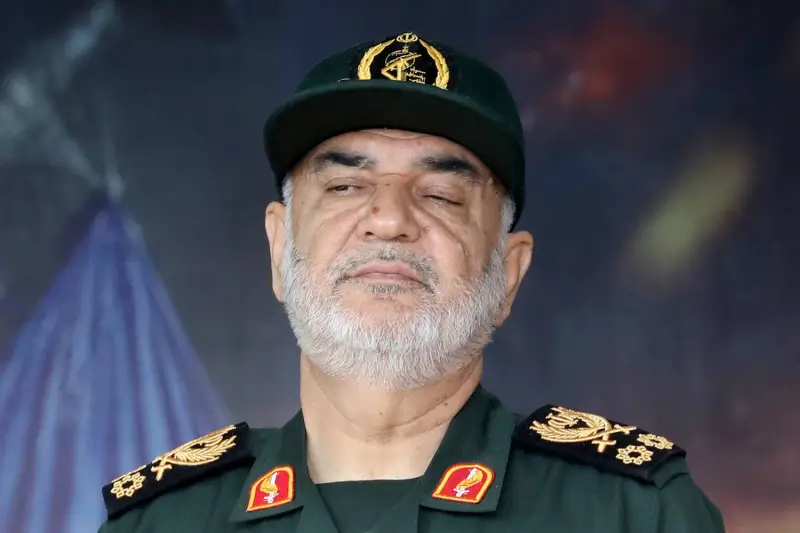
Iran’s Military Just Lost Its ‘Brain Trust’
Israeli strikes killed several of Iran’s top military commanders.
The head of Iran’s Islamic Revolutionary Guard Corps, Hossein Salami, attends a military parade in Tehran on April 17, 2024. Atta Kenare/AFP via Getty Images
Israel launched a stunning attack on Iran early on June 13 local time, striking targets across the country in a massive, ongoing operation focused on Iran’s military and nuclear program.
The full extent of the damage remains to be seen as details of the surprise Israeli operation continue to emerge, but Iranian state media has confirmed the deaths of several major military leaders and nuclear scientists.
Israel launched a stunning attack on Iran early on June 13 local time, striking targets across the country in a massive, ongoing operation focused on Iran’s military and nuclear program.
The full extent of the damage remains to be seen as details of the surprise Israeli operation continue to emerge, but Iranian state media has confirmed the deaths of several major military leaders and nuclear scientists.
Among those killed were Gen. Mohammad Bagheri, the chief of staff of the armed forces, and Gen. Hossein Salami, commander of the Islamic Revolutionary Guard Corps (IRGC). Gen. Gholamali Rashid, deputy commander in chief of the armed forces, and Gen. Amir Ali Hajizadeh, the head of the IRGC’s ballistic missile unit, were also killed.
To get a better sense of what these losses and changes in the chain of command mean for Iran, its military capabilities, the stability of the Iranian regime, and the future of the region, Foreign Policy spoke with Afshon Ostovar, a professor of national security affairs at the Naval Postgraduate School. Ostovar is an expert on Iran’s military and the author of Wars of Ambition: The United States, Iran, and the Struggle for the Middle East and Vanguard of the Imam: Religion, Politics, and Iran’s Revolutionary Guards.
This interview has been edited for length and clarity.
Foreign Policy: Iran lost its chief of staff of the armed forces, the head of the IRGC, the deputy commander in chief of the armed forces, and the head of the IRGC’s ballistic missile unit. How big of a blow is this to Iran’s chain of command?
Afshon Ostovar: It’s a huge blow. It’s eviscerated a brain trust that has led Iran’s strategy for the last 20 years. In many ways, the biggest blow is the loss of aerospace commander Hajizadeh, who, even more than [former IRGC Quds Force commander Gen.] Qassem Soleimani, was the architect of Iran’s military strategy and was its most important military thinker up until last year.
He created a missile and drone program that had made Iran lethal and difficult to deal with, made Iran a weapons exporter—especially to Russia—and, more than anything, was the general called upon to answer any adversarial attacks against Iran. In this moment, when Iran’s strategic sites and nuclear sites have been hit or destroyed—Hajizadeh’s voice is going to be really absent.
FP: To contextualize the significance of these deaths, what would the equivalent be in the United States? Would it be like losing a CIA director or defense secretary, among other top figures, all at once?
AO: It’s difficult to make a one-to-one comparison, particularly within the United States because our military is much more institutionalized. It tends to not rely on major personalities to drive policy.
Within Iran’s system, personalities really matter because people stay in office a lot longer. And because Iran is a dictatorship, those relationships that those top commanders have with the supreme leader himself are what shape and animate Iran’s decision-making. Iran’s supreme leader relies on this brain trust, not just in a figurative way, but in a literal way. They actually give him advice, and he trusts them to carry out what they suggest for him to do.
In this sense, it’s not just taking out heads of military, but it’s like taking out the bulk of your national security council. It’s like taking out your cabinet. [Supreme Leader Ayatollah Ali] Khamenei is much more alone now than he was yesterday.
FP: How quickly and easily can Iran replace some of these leaders? How deep is the leadership bench?
AO: In broad strokes, it can replace them immediately—and it already has. You’re going to have deputies or second deputies. You’re going to have somebody that knows the shop, knows the business, and can rise up and take that position. The difference is, they’re not going to have the credibility, the personal relationships, the confidence, or even the experience in Iran’s leadership circles that their predecessors had.
In terms of the institutional day-to-day work that military commanders do, they’ll probably do a fine job. But when it comes to the larger strategic and action-taking measures, that’s where they will be at a deficit.
FP: What do you expect from this new generation of leaders? Should we expect them to be more aggressive? Will there be an ideological shift?
AO: The guys who have immediately replaced [those killed]—they’re all more or less still old guys. But once you move people up, everybody else in the chain is going to be moved up, as well. So, the younger generation is getting closer and closer to taking command. And the younger generation, they cut their teeth in Syria, Iraq, Yemen, and Lebanon. For them, they got to see Iran at its most powerful, at its most influential. They’ve also seen the precipitous collapse of all of that in the last year. And it’s difficult to say precisely where their minds are at right now.
If you’d asked me this last year, before the collapse of Syria, for example, I would have said that the younger generation within the IRGC is more hawkish, more confident, much more strident in its focus on Israel and the United States, and, more than anything, detached from all of the early episodes that formed the Islamic Republic—especially the Iran-Iraq War.
Everybody that was killed in these attacks, they were all veterans of the Iran-Iraq War. That was the war that gave them their start and that really shaped their worldview. And that war is important for a lot of reasons, but one of the most important reasons is that it was a very long, exhausting, destructive war. It’s what prompted Iran’s military leadership to make sure that war did not return to Iran. They wanted to keep war away from Iran. They wanted to fight wars through proxies and deflect as much from Iran as possible.
But now the war has come to them, and if the younger generation is coming online, they don’t have that experience. They didn’t live through that war. It’ll be interesting to see if they have an appetite for war now, or if they are sufficiently discouraged and just want to find an off-ramp.
FP: Iran was already considered greatly weakened prior to this attack. What do the losses of these major figures in the chain of command mean in terms of Iran’s capabilities and readiness moving forward? Should Iran still be perceived as a threat by Israel and its allies?
AO: Frankly, I didn’t consider Iran as much of a threat yesterday as maybe the leadership in Israel did. Iran had lost much of its geography that it controlled, and most of its proxies that were meaningful have either been destroyed like Hamas or eviscerated like Hezbollah. Iran’s ability to wage war indirectly was mostly gone. The Houthis still exist and can still do some serious things, but Iran had really been taken down a peg.
To me, Iran was at 50 percent capacity in terms of its power. Iran wasn’t a benign actor, but it was, in many ways, a spent force. But obviously Iran still had the intent. Iran still had tremendous capabilities, and Iran did not want to compromise sufficiently on its nuclear program to allay the fears and concerns of the United States and Israel. Iran is much less of a threat now.
There’s only so much you can do by bombing Iran. You can destroy a lot of things, but a lot of things in Iran are underground. The regime is probably going to be pretty resilient in terms of being able to blunt any attempt to overthrow it. If you really want to destroy everything that Iran possesses, you’d have to put troops on the ground, and you’d have to go site by site and destroy it right there.
There’s a possibility that Iran could still possess enough fissile material, enough underground enrichment capacity, and perhaps has retained its know-how on the bomb-making side. It could still end up with a nuclear weapon if it chooses to do that. I don’t know if it’s lost its stockpile or not. But if it hasn’t, and if all this stuff remains pretty well guarded under mountains, Iran could conceivably still have a test and still come out a nuclear power in the next weeks, months, years—a blunted one, but one that still has crossed that threshold. That’s really the only card that they have yet to play.
If they lose their nuclear program, either through compromise or through military degradation, they’re going to lose their last potent deterrent against at least the United States. It’s obviously not a deterrent against Israel anymore.
Iran still has an ability to do damage if it wants, but it no longer has an ability, I would suggest, to restore deterrence. And because it can’t restore deterrence in any meaningful way, all of its military power really doesn’t serve the same function as it was designed to.
FP: Does Israel’s attack guarantee that Iran will move toward weaponization?
AO: I would never say definitely, but I think it’s a very possible outcome. Iran has very little choice. It can fight a war that’s going to leave it in ruins and bring everybody with it as the ship goes down. It can compromise with the United States, sign a deal, and hope that is sufficient to make peace with Israel.
Or, Iran could theoretically do a nuclear breakout and come out with a test and a weapon. In some sense, you could imagine them doing that because they’re defeated in every other way.
But that’s the worst option. That’s the North Korea scenario for Iran. If they go nuclear, they will have essentially cut off the pathways for normalization, for reform, for improving their economy. They’ll really be doubling down on isolation and sanctions, at the very least. Their economy would continue to get worse. Their population would become increasingly restive. Iran would have to turn its attention, almost in total, to internal oppression, while also dealing with Israeli attempts to do more damage.
It’s not a great option for Iran to go nuclear. It doesn’t lead in any hopeful path for the regime, but it could be a Hail Mary for the regime. In that sense, it could be seen as the least bad option for the regime.
FP: What does this attack do to the Iranian regime’s grip on power?
AO: It’s going to make them terrified. The first order of business for the regime, for any regime, is to stay in power. Right now, they’re not just fearful of the external dangers to their rule, but they’re also going to be nervous about the internal situation.
The regime knows that the majority of Iranians have, for a long time, not had any interest or supported Iran’s war with Israel. This is a regime goal, aim, objective—this is their pet issue. But this is not an issue that’s supported by the Iranian people, for the most part, because it’s what has led Iran into economic decline. It’s why Iranian passports are terrible. It’s why they’re banned from entering the United States.
The regime’s regional war against Israel has led Iran into economic ruin, and the people have never supported it. This is going to be a weak moment for [the regime]. And there’s always going to be the fear that people can start protesting, that people can come out on the streets, and then that could sort of create a very delicate situation.
The one thing that the regime is probably going to be very adept at is internal oppression, and that is something that they’re probably going to be focused on, at least in their internal deliberations, immediately. Whereas the brain trust for their regional framework and for their missile and drone programs have all been killed, the brain trust for their police, the Basij [paramilitary volunteer force], and the internal security forces are all still there. That side is going to be seamlessly transitioning into damage control.
I also think the Iranian people know this, and so I would be surprised if people start protesting anytime soon, because the regime is going to want to crack skulls. And if they can’t crack skulls in Israel, they’re going to be cracking skulls at home.
This post is part of FP’s ongoing coverage. Read more here.
John Haltiwanger is a reporter at Foreign Policy. Bluesky: @jchaltiwanger.bsky.social X: @jchaltiwanger
Stories Readers Liked
Iran-Israel Conflict
Analysis and reporting

How the Israel-Iran War Might End
Scenarios include an Iranian defeat, an Israeli retreat—or an expanded regional conflict.
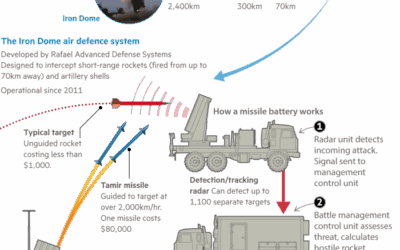
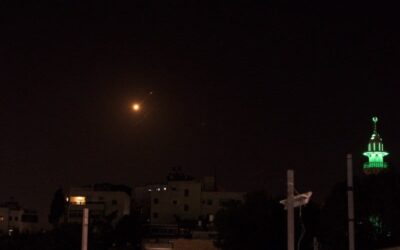














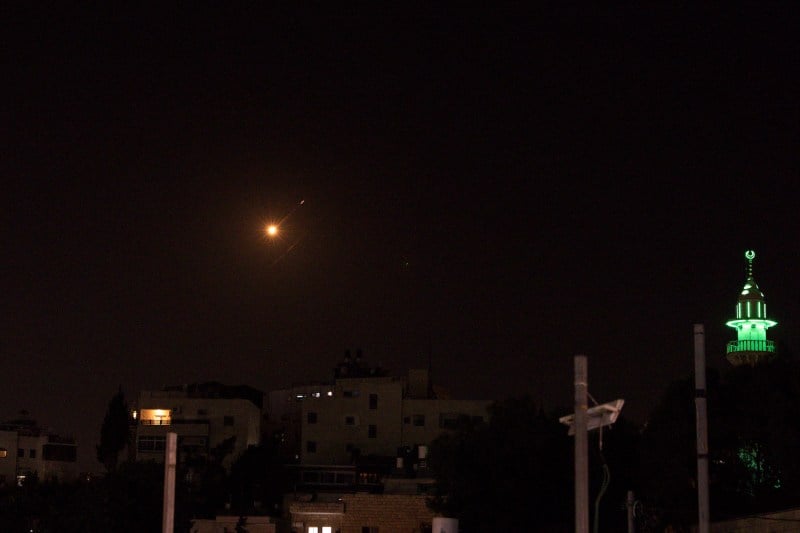
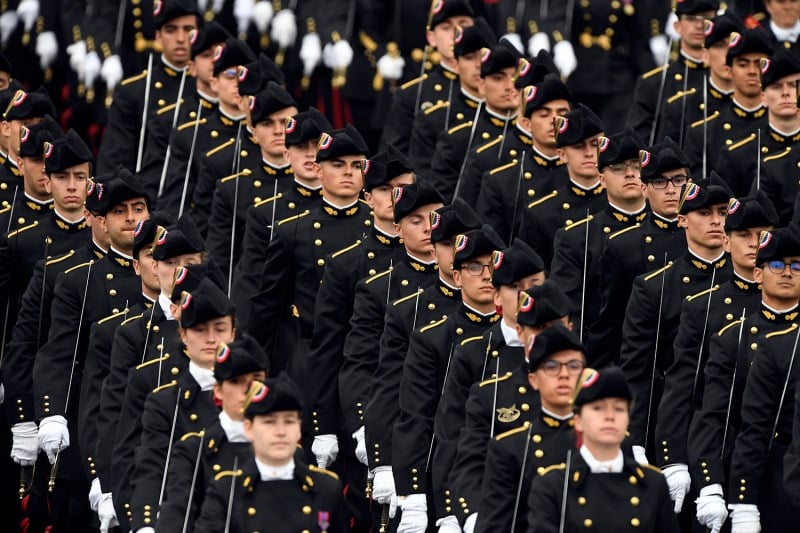


Join the Conversation
Commenting is a benefit of a Foreign Policy subscription.
Subscribe
Subscribe
Already a subscriber?
.
View Comments
Join the Conversation
Join the conversation on this and other recent Foreign Policy articles when you subscribe now.
Subscribe
Subscribe
Not your account?
View Comments
Join the Conversation
Please follow our comment guidelines, stay on topic, and be civil, courteous, and respectful of others’ beliefs.
View Comments
Change your username |
Log out
Change your username:
CANCEL
Confirm your username to get started.
The default username below has been generated using the first name and last initial on your FP subscriber account. Usernames may be updated at any time and must not contain inappropriate or offensive language.